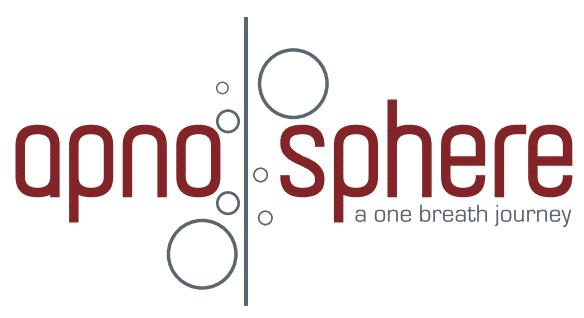Frequently asked questions about freediving
While all three activities involve the ocean and the breath, they are all somehow unique in their way yet can be very complimentary to each other.
Snorkeling provides you with an unlimited air supply to explore the ocean from the surface while breathing through a snorkel. Scuba diving involves diving with specific equipment that allows you to breathe underwater for a certain amount of time.
Freediving is diving on a breath-hold and your underwater experience will be defined mostly by how long you can hold your breath and a few other factors.
The only physical requirement needed is to be able to swim 200m non-stop without a time limit with any stroke or swim 300m with a mask, snorkel, and fins. Swimming is a basic skill that will ensure your safety once in water and will make you feel more comfortable during the course.
You will have to fill out a medical form to confirm that you do not have any health condition that is not safe for freediving. It is recommended to consult with your physician before enrolling in a freediving course.
Since the ability to hold your breath for a long time has more to do with a person’s tolerance to high-level carbon dioxide, you can still learn how to freedive even if you smoke. Of course, if you want to progress faster, some changes in your lifestyle are recommended.
All necessary equipment will be provided for the duration of the course at no extra fee. You get a 10% discount if you have your own full set of equipment of mask, snorkel, fins, and wetsuit.
Yes, I do. I offer a 10% discount for bookings involving 2-3 persons who are related. I do not teach strangers together nor accept bookings of more than 3 persons.
Usually, when people ask me this question, they are comparing what I am charging for private freediving teaching to what other instructors are charging for group teaching.
If you do a quick search on the internet you will see that my prices are actually if not the cheapest, among the cheapest worldwide for a private freediving course with an experienced instructor.
I am so confident of that fact that, if you were able to find another freediving instructor of the same caliber as myself meaning having 15 years+ of teaching experience, with an understanding of breathing techniques gained not just from a freediving perspective but also from a yogic and wellness background, and who is charging less than I do, I will gladly match the price.
Apart from that and without wanting to cause prejudice to other freediving instructors, I am confident that the value that I bring in my teachings, the quality of my pedagogy and the level of ecological respect are simply incomparable to others.
While it takes only a couple of weeks to become a freediving instructor with any reputed freediving organization, it took me years to acquire the knowledge and polish my pedagogy so that I can help my students reach their freediving goals in less time than I did.
Maybe the more appropriate question to ask is why are the other freediving instructors charging less than I do.
The prices as listed on the website covers all the expenses. There won’t be any bad surprises.
You have a question that has remained unanswered? Contact Me
